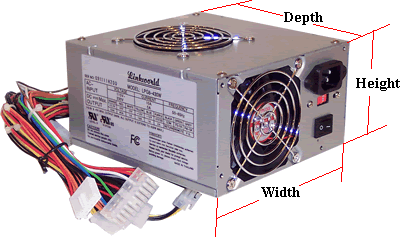
Tips for Choosing a Computer Power Supply
Introduction
When it comes to building or upgrading a computer, one often overlooked component is the power supply. A reliable and efficient power supply is essential for keeping your computer running smoothly and preventing any potential damage to your valuable hardware. In this guide, we will explore some important tips to consider when choosing a computer power supply.
1. Determine Your Power Requirements
Before purchasing a power supply, it is crucial to determine the power requirements of your computer. You can use online power supply calculators to estimate the wattage needed based on the components you have or plan to have in your system. Remember that a power supply with higher wattage allows for future expansion and upgrades.
2. Efficiency Ratings
Look for power supplies with high efficiency ratings, such as 80 Plus Bronze, 80 Plus Silver, 80 Plus Gold, or 80 Plus Platinum. These ratings indicate how efficiently the power supply converts AC power from your wall outlet into DC power for your computer components. Higher efficiency means less wasted energy and reduced energy bills.
3. Modular or Non-Modular
Consider whether you want a modular or non-modular power supply. Modular power supplies allow you to detach unnecessary cables, resulting in a cleaner and more efficient build. Non-modular power supplies come with fixed cables, which may lead to tangled wires and hinder proper airflow within your computer case.
4. Connectors and Cable Length
Ensure that the power supply you choose has sufficient connectors and cable length to accommodate your specific computer setup. Most modern power supplies come with a variety of connectors, including those for motherboards, graphics cards, hard drives, and peripherals. Adequate cable length ensures neat cable management and easy installation.
5. Brand Reputation and Warranty
Opt for power supplies from reputable brands known for their reliability and quality. Some well-regarded power supply manufacturers include Corsair, EVGA, Seasonic, and Thermaltake. Additionally, check the warranty offered by the manufacturer. A longer warranty period indicates their confidence in the product’s longevity and offers you peace of mind in case of any potential issues.
6. Noise and Cooling
Consider the noise level generated by the power supply. Power supplies with larger fans tend to be quieter as they operate at lower RPMs to achieve sufficient cooling. Additionally, look for power supplies with sufficient airflow and cooling mechanisms to prevent overheating, as excessive heat can significantly reduce the lifespan of your components.
7. Reviews and Recommendations
Before making a final decision, read reviews and seek recommendations from trusted sources. Online forums, technology review websites, and user testimonials can provide valuable insights into the performance and reliability of various power supply models. This research will help you make an informed choice and avoid potential regrets.
Conclusion
Choosing the right power supply for your computer is a crucial step towards maintaining its optimal performance, longevity, and reliability. By considering factors such as power requirements, efficiency ratings, modularity, connectors, brand reputation, noise, and cooling, you can make a well-informed decision. Remember, investing in a high-quality power supply ensures that your computer runs smoothly, even during intensive tasks or future upgrades.


